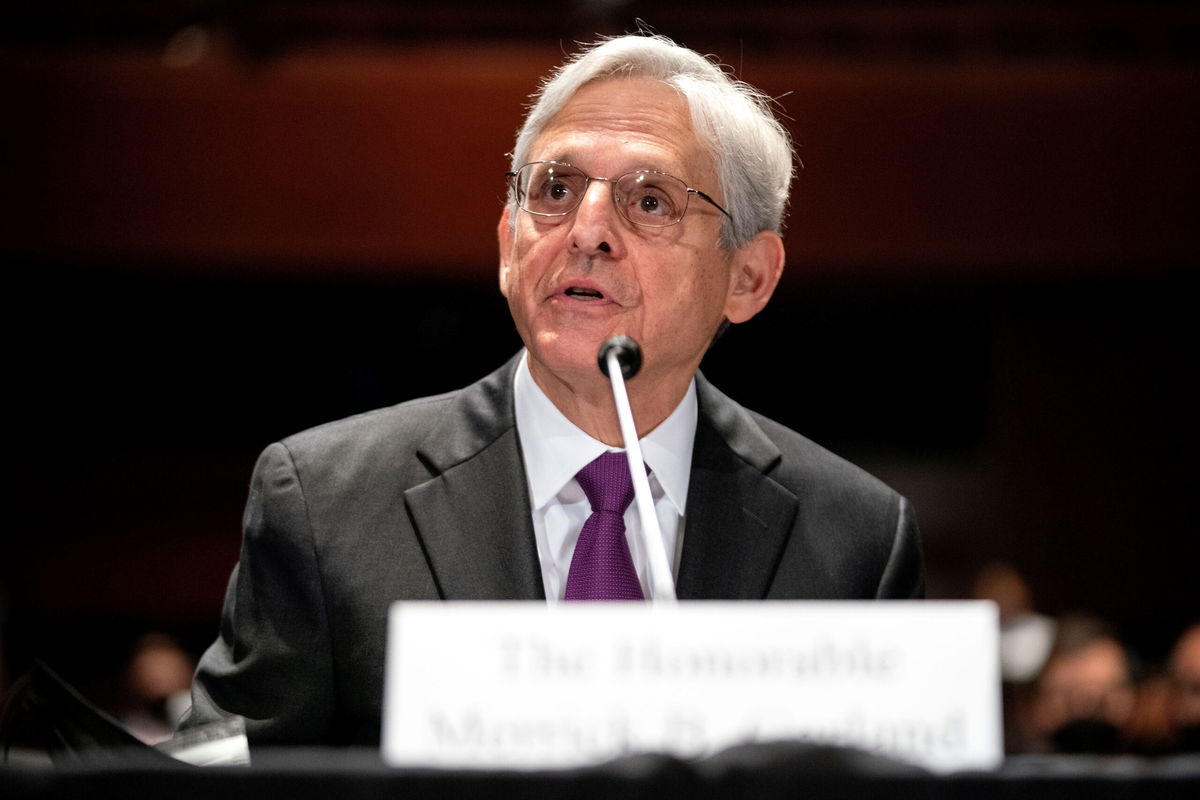Attorney General Garland faces relentless GOP pressure after issuing memo on school board threats

Attorney General Garland faces relentless GOP pressure after issuing a memo on school board threats.
By Evan Perez and Tierney Sneed, CNN
A Justice Department memo that has put Attorney General Merrick Garland in the center of the roiling political controversy over masks and history lessons in schools continues to fuel Republican fire towards the department.
Congressional Republicans have been unrelenting in their criticisms of the October 4 memo, which laid out how the department would work with state and local authorities to respond to threats of violence and harassment against school board officials.
At a House Judiciary Committee hearing with Garland last week, Republicans said the Justice Department appeared to be targeting parents as domestic terrorists. In response, Garland defended his memo, saying the department had no interest in going after parents who voiced their opinions peacefully at school board meetings.
The memo issued by Garland did not make a reference to domestic terrorism and specified that it was concerned with “illegal” threats and harassment.
“We are not investigating peaceful protest or parent involvement at school board meetings. There’s no precedent for doing that and we would never do that,” Garland told the committee. “We are only concerned about violence, threats of violence against school administrators, teachers, staff … a teacher, that is what we’re worried about. We are worried about that across the board. We’re worried about threats against members of Congress. We’re worried about threats against police.”
Garland is expected to face another round of GOP grilling about the memo when he testifies before the Senate Judiciary Committee on Wednesday.
In their latest shot at the department, the House Judiciary Committee’s Republicans asked Garland on Monday to withdraw the memo, while picking apart his testimony on the subject.
They pointed to a message Friday issued by the National School Boards Association, in which the organization apologized for the language that it used in a September entreaty to President Joe Biden seeking a federal response to the threats. In its September letter, which has been cited repeatedly by Republicans, the organization said that the protests and threats against school board members “could be the equivalent to a form of domestic terrorism and hate crimes.”
Schools have become a focus of political fights around the US over Covid pandemic safety measures, including masks, and over history lessons in curriculums that some conservatives claim are critical of White people. School issues have featured prominently in the Virginia governor’s race, where voting ends on November 2.
These normally aren’t matters within the purview of the Justice Department.
The school memo controversy stands in contrast with other contentious issues that Garland has had to deal with — most of which he inherited — like the January 6 investigation and the DOJ’s handling of a defamation lawsuit against former President Donald Trump.
The blowback is an indication that seven months into Garland’s tenure at the Justice Department, where his stated goal is to restore norms — divorced from politics — after four Trump norm-busting years, the attorney general has landed at the center of political controversy of his own making.
The October 4 memo is unusual for saying not much beyond the obvious: that it’s illegal to make threats of violence. It orders prosecutors and federal law enforcement to have meetings and consider strategies to deal with the issue.
The obliquely written language is the kind that Justice Department officials sometimes use to call attention to an issue, without promising any specific legal action. Threats against school administrators and teachers normally are investigated by state and local authorities, not the FBI.
The prospect of tasking the FBI to wade in came as a surprise even to bureau officials, who received the memo shortly before it became public, according to people briefed on the matter.
Republicans zero in
The memo has made for particularly potent fodder in Virginia’s gubernatorial race, where Republican nominee Glenn Youngkin alluded to the memo in a campaign ad that claimed that the FBI was “trying to silence parents.”
Rather than quell the controversy, the Friday release of the message from the National School Boards Association propelled another round of scrutiny from Republicans. The association said Friday that its board of directors “regret and apologize for” the September letter to Biden, but the group reiterated that safety of school officials and students remains a “top priority.”
The House Judiciary Committee Republicans argued Monday that Garland has no choice but to withdraw the memo.
“Because the NSBA letter was the basis for your memorandum and given that your memorandum has been and will continue to be read as threatening parents and chilling their protected First Amendment rights, the only responsible course of action is for you to fully and unequivocally withdraw your memorandum immediately,” they said in a letter to Garland.
Spokespeople for the Justice Department did not respond to requests for comment on the Republicans’ letter. The school board association declined to comment.
The topic is almost certain to come up again at Wednesday’s Senate Judiciary Committee hearing. The committee’s Republicans grilled Assistant Attorney General Kristen Clarke — who heads a division that was not responsible for the memo — about it when she was before the committee earlier this month.
Sen. Marsha Blackburn, a Tennessee Republican on the Senate Judiciary panel, suggested that the DOJ’s approach was treating parents like “domestic terrorists for daring to ask elected school board members questions about what is being taught to their children.”
“While this is not an issue that the civil rights division handled, this is a memorandum issued by the attorney general. I know that the department is committed to ensuring robust civil discourse,” Clarke said at the hearing.
This story has been updated with additional details.
The-CNN-Wire
™ & © 2021 Cable News Network, Inc., a WarnerMedia Company. All rights reserved.